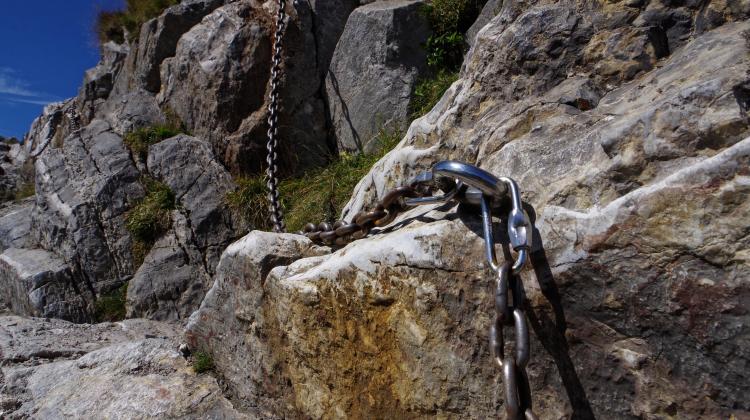Gold Medal of Chemistry for the creator of miniature containers
 Photo: press materials
Photo: press materials
Małgorzata Lewińska from the University of Warsaw won the Gold Medal of Chemistry competition on Tuesday. In the awarded BA thesis she focused on the so-called molecular capsules, compounds in which other substances can be stored.
The aim of the Gold Medal of Chemistry competition, organized this year for the seventh time by the Institute of Physical Chemistry PAS in Warsaw and the company DuPont, is to select the authors of the best BA or engineering theses in chemistry and related to chemistry. This year, a total of 46 projects from 18 universities were submitted, and the top 15 were qualified for the final session, during which the participants presented the results of their research in front of the competition jury.
The author of the winning project is Małgorzata Lewińska from the Faculty of Chemistry of the University of Warsaw. On Tuesday she received a symbolic gold medal and a financial prize of PLN 10,000. In her BA thesis, the winner deals with modifications of the so-called molecular capsules.
"Molecular capsules are usually compounds with a rigid structure, which have an hollow in the centre, separated from the external environment - explained Małgorzata Lewińska in an interview with PAP. - Things from outside cannot enter this hollow. But we can introduce various things into it using a different method, for example during a synthesis reaction".
One of the problems with molecular capsules is that they could only be obtained in one type of solvent: they disintegrated the moment they were introduced into the so-called polar solvent (such as water). "In my work, however, I managed to conduct the synthesis of a molecular capsule in a polar solvent" - said Lewińska. As she added, although at this stage it was impossible to store anything yet in the capsules she had created, she planned to continue her research.
Molecular capsules are currently used to store substances such as highly explosive compounds, for example white phosphorus. The laureate does not rule out the possibility that in the future she might be able to find a way to store drugs in molecular capsules.
Silver Medal of Chemistry and PLN 5,000 prize went to Nina Tarnowicz from the Faculty of Chemistry of Wrocław University of Technology her work on a new liquid crystal matrix that could potentially be used for data storage. The silver medallist was also the winner of the audience award, awarded by the competition finalists for the best presentation during the final session.
Third prize - Bronze Medal of Chemistry - was awarded to two graduates of the Faculty of Chemistry of Warsaw University of Technology: Paulina Marek for studying structures of selected forms of vitamin B6 and Michał Wrzecionek for his work on the synthesis of nanopowders for use in photovoltaic cells. Each of them will receive a PLN 2.5 thousand prize.
In addition, special awards with cash prizes of PLN 1 thousand went to: Małgorzata Bołt from the Faculty of Chemistry, Adam Mickiewicz University in Poznań, Martyna Charyton from the Faculty of Chemistry, Warsaw University of Technology, Monika Topa from the Faculty of Chemical Engineering and Technology, Cracow University of Technology, and Mateusz Witkowski from the Faculty of Physics, Astronomy and Informatics of the Nicolaus Copernicus University in Toruń.
In addition to the main prizes, three special DuPont prizes worth PLN 2,000 were awarded. They went to: Monika Topa, Michał Wrzecionek and Grzegorz Matyszczak from the Faculty of Chemistry of Warsaw University of Technology.
The competition\'s finalists will also have the opportunity to complete a scientific internship with the possibility of carrying our their proposed research free of charge in the Institute of Physical Chemistry PAS laboratories in the form of short-term or long-term projects.
PAP - Science in Poland was one of the media sponsors of the competition. (PAP)
author: Katarzyna Florencka
kflo/ agt/ kap/
tr. RL
Przed dodaniem komentarza prosimy o zapoznanie z Regulaminem forum serwisu Nauka w Polsce.















